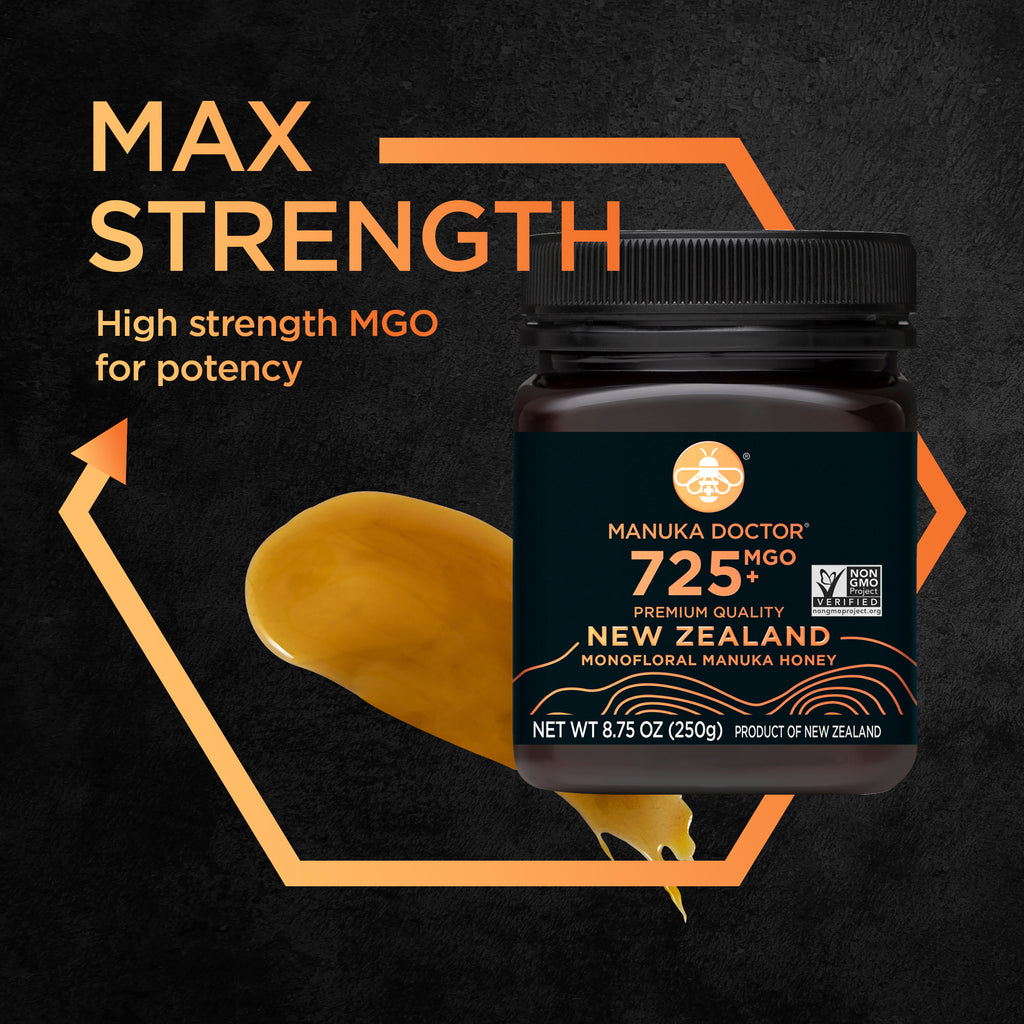
Are you looking for a natural remedy that boasts numerous health benefits? Look no further than Manuka Doctor Manuka Honey. Known for its unique properties and incredible healing potential, this golden elixir is a must-have in every household. From boosting your immune system to soothing a sore throat, this article will explore the endless benefits of Manuka Doctor Manuka Honey and why it should be a staple in your wellness routine.
1. What is Manuka Doctor Manuka Honey?
1.1 Definition of Manuka Honey
Manuka honey is a unique type of honey that is produced by bees that feed on the nectar of the Manuka bush, also known as Leptospermum scoparium. It is native to New Zealand and has been used for its medicinal properties for centuries. Manuka honey is characterized by its thick texture, dark color, and strong, earthy flavor.
1.2 About Manuka Doctor
Manuka Doctor is a well-known brand that specializes in producing high-quality Manuka honey. They are committed to providing consumers with honey that is both delicious and beneficial for their health. Manuka Doctor sources their honey from pristine locations in New Zealand, ensuring that it is of the highest quality.
1.3 Difference between regular honey and Manuka honey
While regular honey is a natural sweetener, Manuka honey offers a wide range of unique health benefits. One of the key differences between the two is the presence of methylglyoxal (MGO), a compound found in high levels in Manuka honey. MGO is responsible for many of the antimicrobial and healing properties of Manuka honey.
1.4 How Manuka honey gets its unique properties
The unique properties of Manuka honey can be attributed to the presence of several bioactive compounds. MGO, as mentioned earlier, plays a significant role in providing the honey with antimicrobial properties. Additionally, Manuka honey contains hydrogen peroxide, which acts as a natural antiseptic. The presence of flavonoids and phenolic acids further enhance its antioxidant and anti-inflammatory properties.
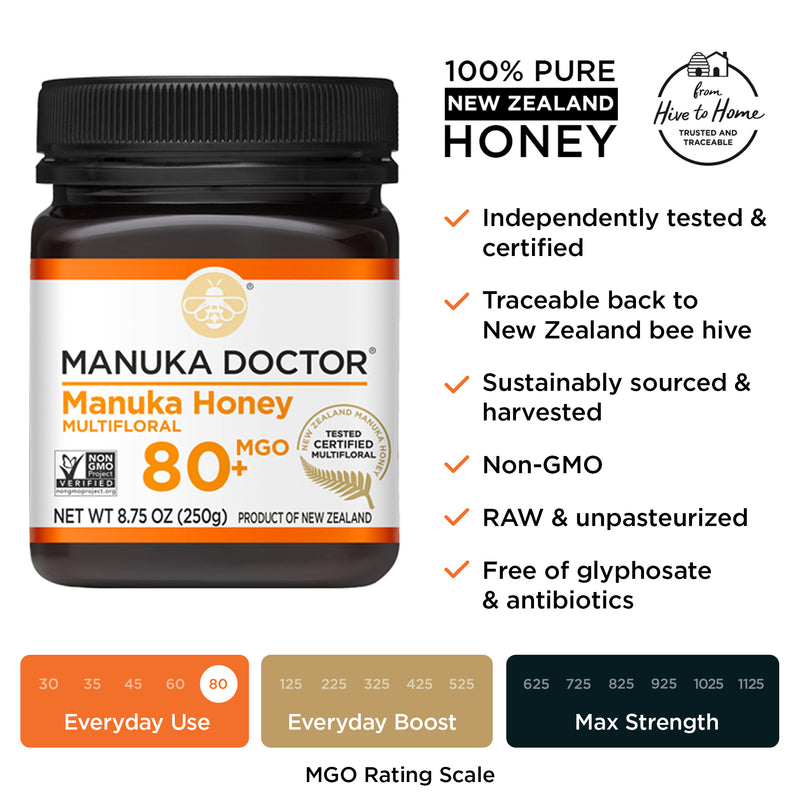
2. Health Benefits of Manuka Doctor Manuka Honey
2.1 Antimicrobial properties
Manuka honey has been found to possess strong antimicrobial activity, making it effective against a wide range of bacteria and fungi. It can be used topically to treat wounds, burns, and infections, as well as taken orally to support overall immune health.
2.2 Wound healing
One of the most well-known benefits of Manuka honey is its ability to promote wound healing. Its antimicrobial properties help prevent infection, while its acidic pH and high sugar content create an optimal environment for wound healing. Manuka honey has been used in medical settings to treat ulcers, burns, and surgical wounds.
2.3 Digestive health
Consuming Manuka honey may support digestive health by soothing gastrointestinal inflammation and promoting the growth of beneficial gut bacteria. It has been used to alleviate symptoms of conditions such as acid reflux, gastritis, and irritable bowel syndrome (IBS).
2.4 Immune system support
Manuka honey contains various compounds that can help boost the immune system. Its antimicrobial properties help fight off harmful bacteria and viruses, while its antioxidant content helps protect against free radicals that can damage cells. Regular consumption of Manuka honey may help strengthen the immune system and reduce the risk of infections.
2.5 Relieving sore throat and cough
Manuka honey has long been used as a natural remedy for soothing sore throats and coughs. Its antibacterial properties help reduce inflammation and provide relief from discomfort. Mixing Manuka honey with warm water or herbal tea can provide soothing relief for those experiencing respiratory symptoms.
2.6 Skin care
The antimicrobial and healing properties of Manuka honey make it an excellent ingredient for skincare products. It can help treat acne, eczema, and other skin conditions due to its ability to reduce inflammation and kill bacteria. applying Manuka honey topically can hydrate and nourish the skin, leaving it soft and supple.
2.7 Oral health
Manuka honey has been found to have positive effects on oral health. Its antimicrobial properties can help prevent the growth of harmful bacteria that cause tooth decay and gum disease. It has also been shown to reduce plaque formation and promote overall oral hygiene.
2.8 Allergy relief
Some studies suggest that consuming local honey, including Manuka honey, may help relieve symptoms of seasonal allergies. Regular exposure to small amounts of allergens present in local honey may help desensitize the immune system, reducing allergic reactions. However, further research is needed to fully understand the extent of its effectiveness.
2.9 Promoting good sleep
Due to its natural sugars and amino acids, Manuka honey can promote the release of serotonin in the brain, which helps regulate sleep patterns. Consuming a small amount of Manuka honey before bed may help improve sleep quality and aid in relaxation.
2.10 Boosting energy levels
Manuka honey is a rich source of carbohydrates, which are the body’s primary source of energy. Consuming Manuka honey can provide a quick and natural energy boost, making it an excellent choice for athletes or individuals in need of an energy pick-me-up.
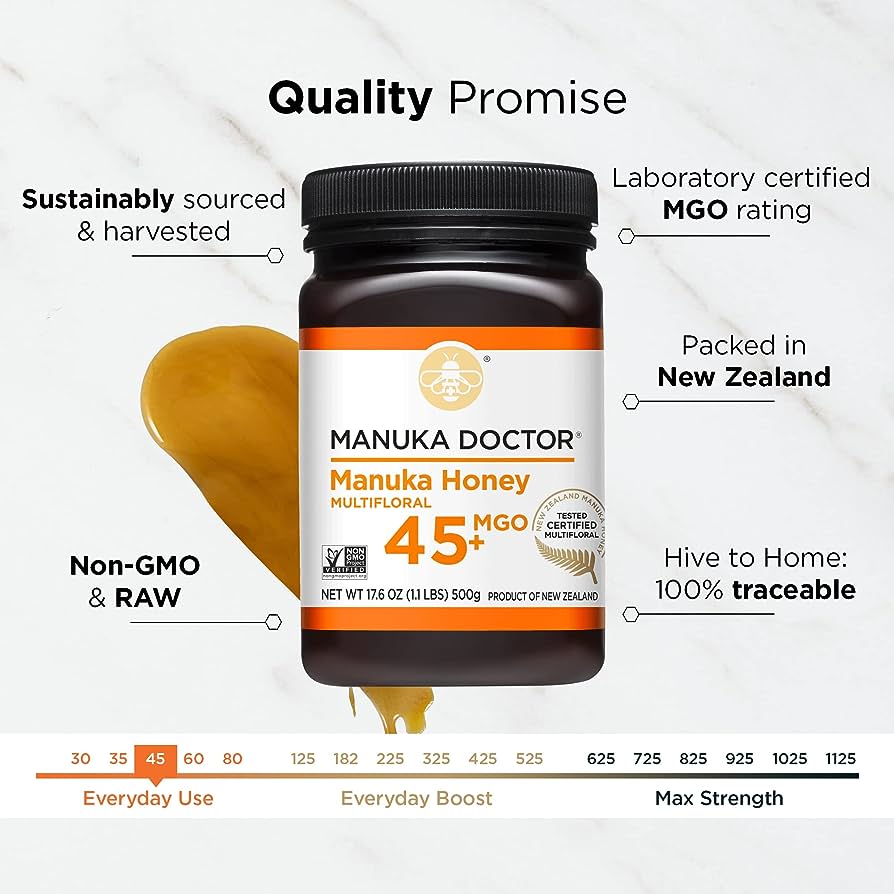
3. How to Incorporate Manuka Doctor Manuka Honey into Your Routine
3.1 Dietary usage
There are numerous ways to incorporate Manuka honey into your daily diet. It can be drizzled over yogurt, cereal, or toast for a nutritious and delicious sweetener. Manuka honey can also be added to smoothies, teas, or warm water with lemon for a soothing and healthy beverage option.
3.2 Topical application
For topical use, apply Manuka honey directly to the affected area. It can be used as a natural face mask, spot treatment for acne, or soothing balm for minor burns and cuts. Make sure to clean the area thoroughly before applying the honey and leave it on for a designated period of time to allow its beneficial properties to work.
3.3 Recipes using Manuka honey
Manuka honey can be used in a variety of recipes to enhance their flavor and health benefits. It can be added to salad dressings, marinades, and glazes for a touch of sweetness. Manuka honey can also be used in baking recipes as a replacement for sugar or other sweeteners.
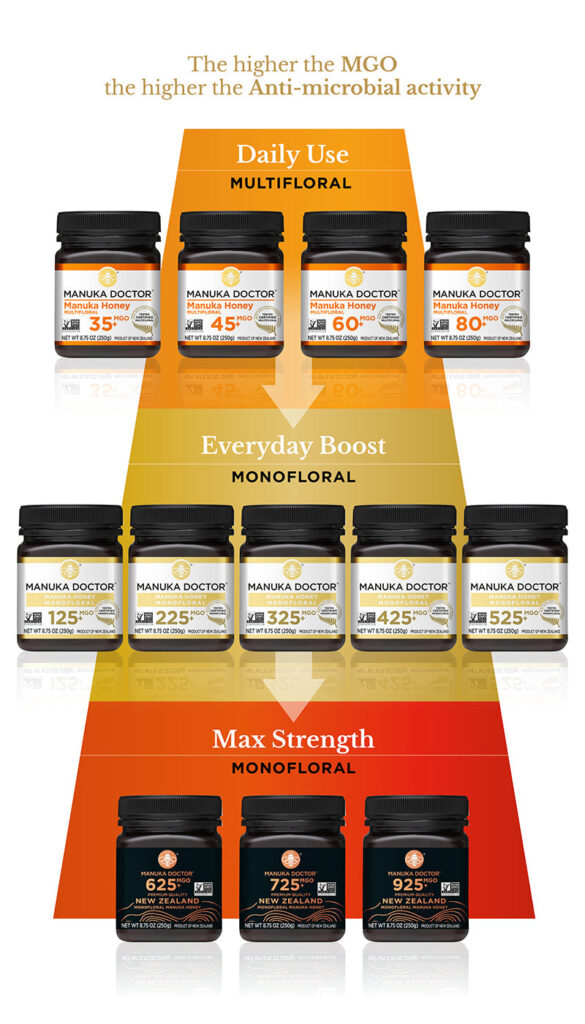
4. Choosing the Right Manuka Doctor Manuka Honey
4.1 Understanding the Unique Manuka Factor (UMF)
The Unique Manuka Factor (UMF) is a grading system that measures the presence of beneficial compounds in Manuka honey, particularly MGO. The higher the UMF rating, the higher the concentration of these compounds and the greater the honey’s therapeutic properties. It is important to look for Manuka honey with a reputable UMF rating to ensure its authenticity and quality.
4.2 UMF rating system
The UMF rating system ranges from 0 to 30+, with higher numbers indicating higher levels of beneficial compounds. A UMF rating of 10+ is considered the minimum level required for therapeutic use. However, for specific medical conditions or more potent benefits, higher UMF ratings may be recommended.
4.3 Types of Manuka honey
Manuka honey is available in various forms, including raw, creamed, and infused with other natural ingredients such as ginger or lemon. Each type offers its own unique flavor profile and texture, allowing consumers to choose the one that best suits their preferences and intended usage.
4.4 Authenticity and quality assurance
To ensure the authenticity and quality of Manuka honey, it is essential to purchase from reputable sources. Look for brands like Manuka Doctor that adhere to strict quality control measures, such as sourcing their honey from certified beekeepers and utilizing independent testing for UMF certification. Authentic Manuka honey should also be labeled with its UMF rating and country of origin.
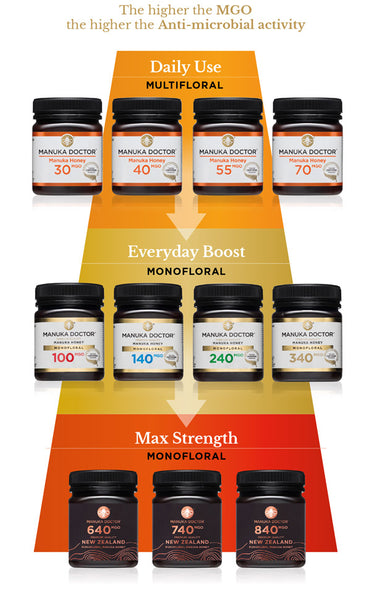
5. Safety Considerations and Potential Side Effects
5.1 Possible allergic reactions
Although rare, some individuals may be allergic to bee products, including Manuka honey. If you have a known allergy to honey or bees, it is advisable to avoid consuming or using Manuka honey. Additionally, if you experience any symptoms of an allergic reaction after consuming Manuka honey, such as hives, swelling, or difficulty breathing, seek medical attention immediately.
5.2 Potential risks for infants and young children
Due to the potential presence of harmful bacteria, it is not recommended to give honey, including Manuka honey, to infants under one year of age. Their immune systems may not be fully developed, making them more susceptible to the bacteria found in honey.
5.3 High sugar content
While Manuka honey offers numerous health benefits, it is important to consume it in moderation due to its high sugar content. Excessive consumption of Manuka honey can contribute to weight gain, tooth decay, and other health issues associated with excessive sugar intake.

6. Frequently Asked Questions (FAQs)
6.1 What is the recommended daily dosage of Manuka honey?
The recommended daily dosage of Manuka honey varies depending on the purpose of its use and the individual’s overall health. It is generally recommended to start with a small amount, such as one to two teaspoons per day, and gradually increase if desired. It is best to consult with a healthcare professional for personalized dosage recommendations.
6.2 Can Manuka honey help with acne?
Yes, Manuka honey can be beneficial for acne-prone skin. Its antibacterial and anti-inflammatory properties can help reduce inflammation, kill acne-causing bacteria, and promote wound healing. Applying Manuka honey directly to the affected areas or using skincare products containing Manuka honey can help improve the appearance of acne.
6.3 Is Manuka honey safe for diabetics?
Manuka honey, like other types of honey, is high in sugar and should be consumed in moderation by individuals with diabetes. It is crucial for diabetics to monitor their blood sugar levels and work with a healthcare professional to determine if the occasional consumption of Manuka honey is appropriate for their specific condition.
6.4 How should Manuka honey be stored?
To maintain the quality and potency of Manuka honey, it should be stored in a cool, dry place away from direct sunlight. Avoid placing it in the refrigerator, as this can cause crystallization. When properly stored, Manuka honey can have a long shelf life and still retain its beneficial properties.
6.5 Can Manuka honey be used in cooking?
Yes, Manuka honey can be used in cooking and baking as a healthier alternative to processed sugars. Its unique flavor and rich texture can enhance a wide variety of recipes, from marinades and glazes to desserts and beverages. However, keep in mind that high heat can potentially diminish some of the honey’s beneficial properties, so it is best to add it to recipes once they have cooled slightly.